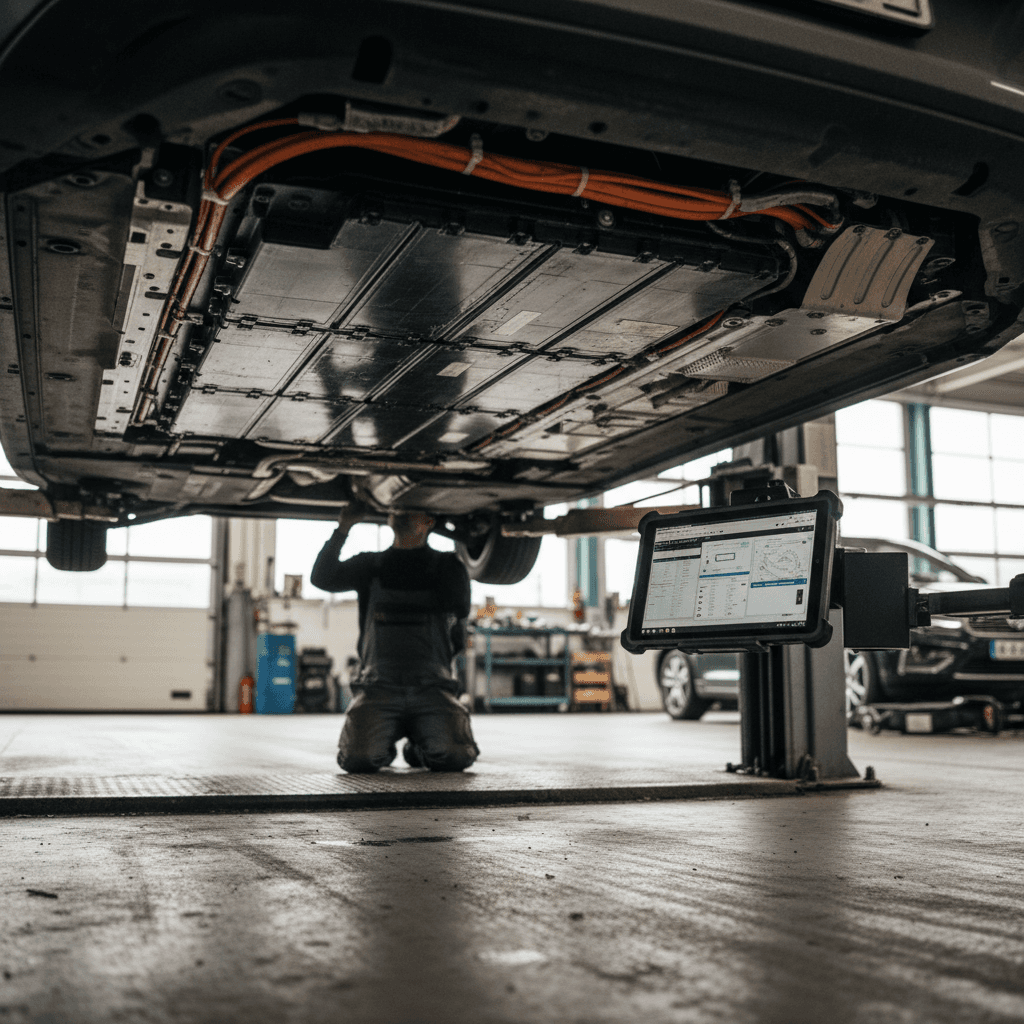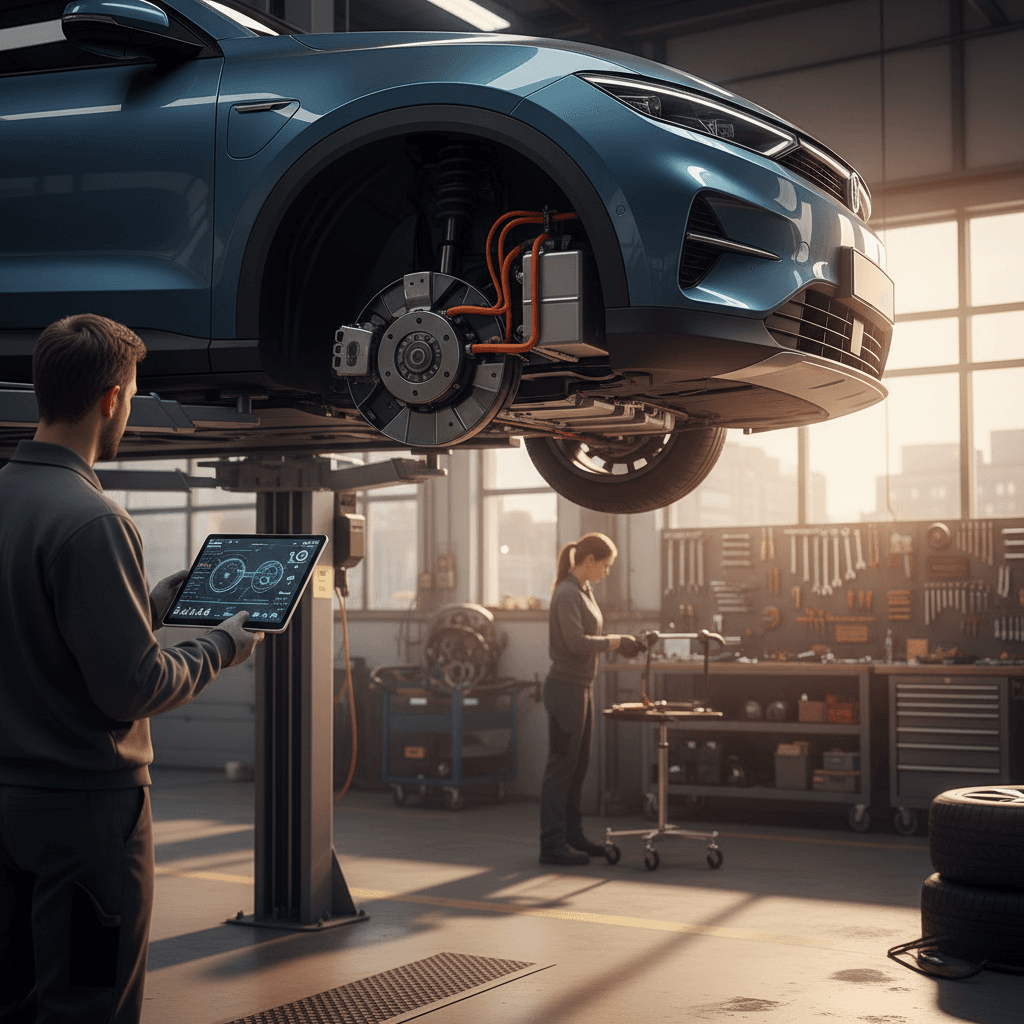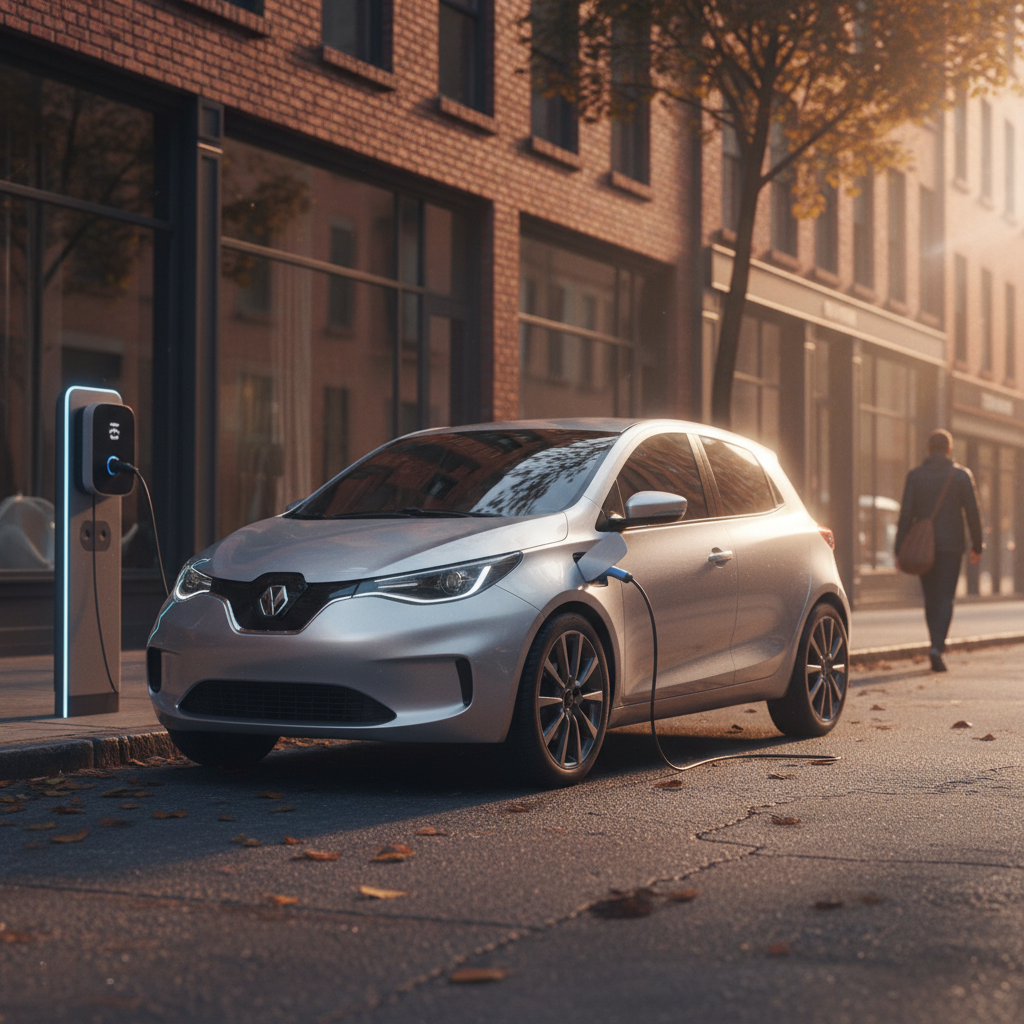If you just typed “tune up shops near me” into a search bar and you drive, or are thinking about buying, an electric vehicle, you’re not alone. Most of us grew up with gas cars that needed regular tune ups, and that habit carries over even when the car in the driveway is now powered by electrons instead of gasoline.
Big Idea
Why You’re Searching for “Tune Up Shops Near Me”
For decades, owning a car meant booking a tune up every so often to keep things running right, spark plugs, distributor caps, timing adjustments, and so on. If you’re new to EVs, it’s natural to assume your electric car needs the same treatment and to look for tune up shops near you that can handle it.
- You’re transitioning from a gas vehicle and keeping the same habits.
- You just bought a used EV and want a “baseline” health check.
- A dash light came on and you’re not sure if it’s serious.
- You’ve hit a mileage milestone and assume a tune up is due.
- A dealer recommended a long list of services and you want a second opinion.
The good news: modern EVs have far fewer moving parts and need far less routine service than a gasoline car. The better news: once you understand what actually needs attention, you can pick a shop that specializes in EVs instead of paying for legacy services your car simply doesn’t need.
Do Electric Cars Actually Need a Tune Up?
In the classic sense, no, electric cars do not need tune ups. A traditional tune up is all about the internal combustion engine: replacing spark plugs, adjusting ignition timing, checking the fuel system, and changing engine oil. Your EV doesn’t have those components, so there’s nothing to “tune” in that way.
Old-School Tune Up vs. Modern EV Service
Same goal, reliability, but completely different playbook.
Gas Car Tune Up
- Replace spark plugs and ignition parts
- Adjust timing and idle
- Change engine oil and filters
- Inspect exhaust and emissions components
EV Service Visit
- Software/diagnostic scan
- Battery and high‑voltage system checks
- Tires, brakes, and suspension inspection
- Fluids and cabin filter replacement as needed
Think "checkup," not "tune up"
What an EV “Tune Up” Visit Includes Today
Even though your EV skips the engine work, it still benefits from periodic inspections, especially as mileage adds up or if you’ve just bought a used electric car. Here’s what a good shop will actually do when you book an EV service visit.
Key Items a Quality EV Shop Should Check
1. Full diagnostic & software check
Technicians connect to your EV’s onboard systems to scan for error codes, check software versions, and confirm that high‑voltage components are behaving normally.
2. High‑voltage battery health review
Expect a summary of state of charge behavior, temperature data, and any warning signs of degradation or imbalance between cells. Some shops provide a printed battery health report.
3. Tires, alignment, and suspension
EVs are heavier than comparable gas cars, so <strong>tire wear</strong> and alignment matter more. A good shop will measure tread depth, inspect for uneven wear, and recommend a rotation or alignment if needed.
4. Brakes and regenerative system
Regenerative braking reduces pad and rotor wear, but the mechanical system still needs inspection for corrosion, sticking calipers, or fluid issues, especially in regions with road salt.
5. Cooling system and fluids
Many EVs use liquid cooling for batteries and power electronics. Shops should check levels and condition of coolant, plus brake fluid and washer fluid.
6. Cabin air filter & basic wear items
Swapping a cabin air filter, wiper blades, and key fob batteries is cheap insurance for comfort and safety, and exactly the sort of light maintenance an EV still needs.

Where Recharged Fits In
How Often Should You Service an EV?
Because there’s no engine oil to change and far fewer wearable parts, most EVs need far less frequent service than the gas car in your past. But “less frequent” doesn’t mean “never.” You’ll still want a simple, predictable rhythm.
Typical EV Service Intervals (Check Your Owner’s Manual)
Always follow your manufacturer’s schedule, but these guidelines fit many modern EVs.
| Item | Recommended Interval | Notes |
|---|---|---|
| Tire rotation | Every 7,500–10,000 miles | Heavier EVs may need more frequent rotations. |
| Brake inspection | At least every 20,000 miles | Pads often last much longer than on gas cars. |
| Cabin air filter | Every 2 years | More often in dusty or urban environments. |
| Coolant check | Every 4–5 years | Some models specify by mileage instead of time. |
| Comprehensive EV health check | Every 2–3 years | Great timing for a used EV or pre‑road‑trip visit. |
These intervals are ballpark numbers, your specific EV may vary slightly.
Why EVs Spend Less Time at Tune Up Shops
How to Find the Right EV Tune Up Shop Near You
When you search for “tune up shops near me” today, most of the results are still geared toward gas cars. Your job is to filter that list down to shops that are comfortable, and properly equipped, to work on high‑voltage vehicles.
Three Ways to Locate EV‑Ready Service Shops
Use more than one method to build a short list you trust.
1. Filter by “EV” in map apps
2. Use automaker and charger apps
3. Ask other EV owners
Questions to Ask Before You Book
Do you regularly work on my EV brand?
An honest shop won’t pretend to be an expert if they’ve never seen your model. Regular experience means faster diagnosis and fewer guess‑and‑check repairs.
Are your techs trained on high‑voltage systems?
Look for OEM training, EV certificates, or at least clear, confident explanations of their process around battery packs and orange‑cabled components.
What does your EV inspection include and cost?
You’re aiming for a clear list of checks, battery, tires, brakes, cooling system, diagnostics, not a generic tune up package with engine services you don’t need.
Can you share a sample inspection report?
Photos and written findings are especially valuable if you’re evaluating a used EV or planning to keep the car long‑term.
What It Costs: EV Maintenance vs Gas Tune Ups
One reason EV owners still search for tune up shops is habit; another is fear of surprise bills. The reality is that routine EV maintenance is usually cheaper over time than maintaining a comparable gas car.
Typical Annual Costs: EV vs. Gas Car (U.S. Averages)
Real‑world averages will vary by region and driving style, but the gap is consistent.
| Service Category | Electric Vehicle | Gasoline Vehicle |
|---|---|---|
| Routine maintenance | $400–$600 per year | $800–$1,200 per year |
| Oil changes & tune ups | $0 | $200–$400+ per year |
| Brakes (long‑term) | Lower due to regen | Higher due to full friction braking |
| Unexpected repairs | Occasional but simpler systems | More frequent engine & exhaust repairs |
Figures shown are broad averages for mainstream vehicles, not luxury models or commercial fleets.
Watch for Legacy Service Menus
Red Flags When Choosing a Tune Up Shop
Most independent shops are working hard to get up to speed on EVs, but some are still learning, and your car shouldn’t be the practice patient. As you narrow down your list, keep an eye out for these warning signs.
- Service writers who can’t clearly describe what they’ll check on an EV.
- Quotes that include engine‑only items (spark plugs, fuel injectors, exhaust repairs) for a battery‑electric car.
- No mention of high‑voltage training or safety procedures when you ask.
- Online reviews that talk only about oil changes and emissions tests, with nothing about EVs.
- Pressure tactics around long, expensive service packages that don’t match your owner’s manual.
High‑Voltage Safety Matters
Used EVs and Tune Ups: What to Check Before You Buy
If you’re shopping for a used EV, you might be thinking, “I’ll just buy it and take it to a tune up shop near me to see what it needs.” That’s better than nothing, but with electric vehicles, you can do much better by focusing on data instead of guesswork.
1. Battery health is the new compression test
On a gas car, a pre‑purchase inspection often includes a compression test or leak‑down test to gauge engine condition. On an EV, the equivalent is a battery health assessment, looking at usable capacity, degradation, and temperature history.
A generic shop might tell you the car “drives fine” but still miss a battery that’s already lost a big chunk of its range.
2. Ask for documented EV service history
You want to see tire rotations, brake inspections, and any battery‑related service noted over time. This helps you spot neglected vehicles and budget realistically.
When you buy through Recharged, every vehicle includes a Recharged Score Report with verified battery health and clear maintenance history, so you’re not guessing.

Pre‑Purchase Checklist Before You Rely on a Local Tune Up Shop
Get a dedicated EV health report
Ask for documentation on battery capacity, range at full charge, and any past high‑voltage alerts. With Recharged, this is built into the Recharged Score.
Review charging behavior and range history
Look at where and how the car was charged, mostly home Level 2, or fast chargers every day? Aggressive DC fast‑charging use can accelerate battery wear.
Inspect tires and suspension closely
Uneven tire wear can hint at alignment or suspension issues, especially on heavier EVs. A quick rotation won’t fix the underlying problem.
Confirm software and recalls are current
Many EV improvements arrive via over‑the‑air updates. Make sure both software updates and safety recalls are handled before you sign paperwork.
FAQ: EV Tune Ups and Maintenance
Frequently Asked Questions
Bottom Line on Tune Up Shops for EV Owners
When you search for “tune up shops near me” as an EV driver, what you really want isn’t a traditional tune up at all, it’s confidence. Confidence that your battery is healthy, your tires and brakes are in good shape, your software is current, and your car will do what you ask of it every day.
The fastest route to that confidence is choosing shops that understand electric vehicles, asking the right questions, and focusing on the items that genuinely affect EV reliability and range. And if you’re still shopping for a used EV, buying through Recharged gives you a head start: every car includes a Recharged Score Report with verified battery health, fair pricing, and EV‑specialist support from the first click to delivery.
Skip the outdated tune up checklist. Look for modern EV expertise instead, and your next service visit, or next used EV purchase, will feel a lot less like a gamble and a lot more like a smart, well‑informed decision.

